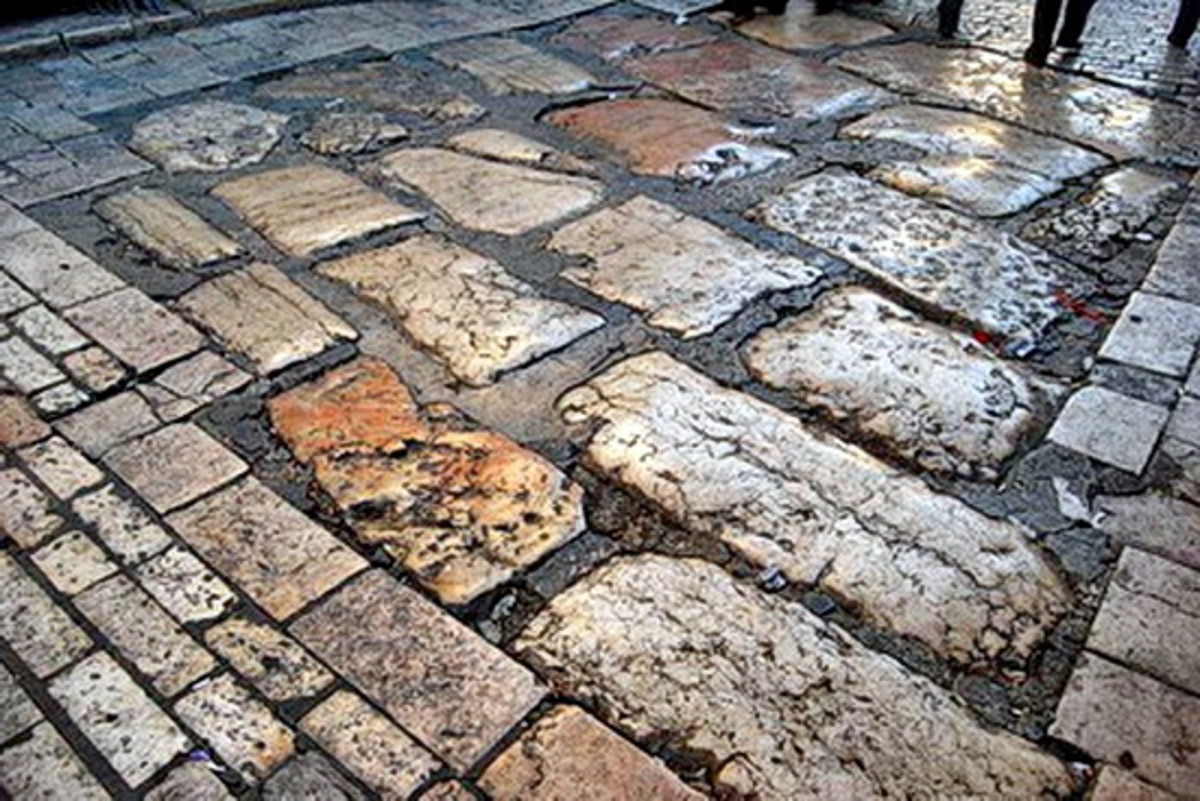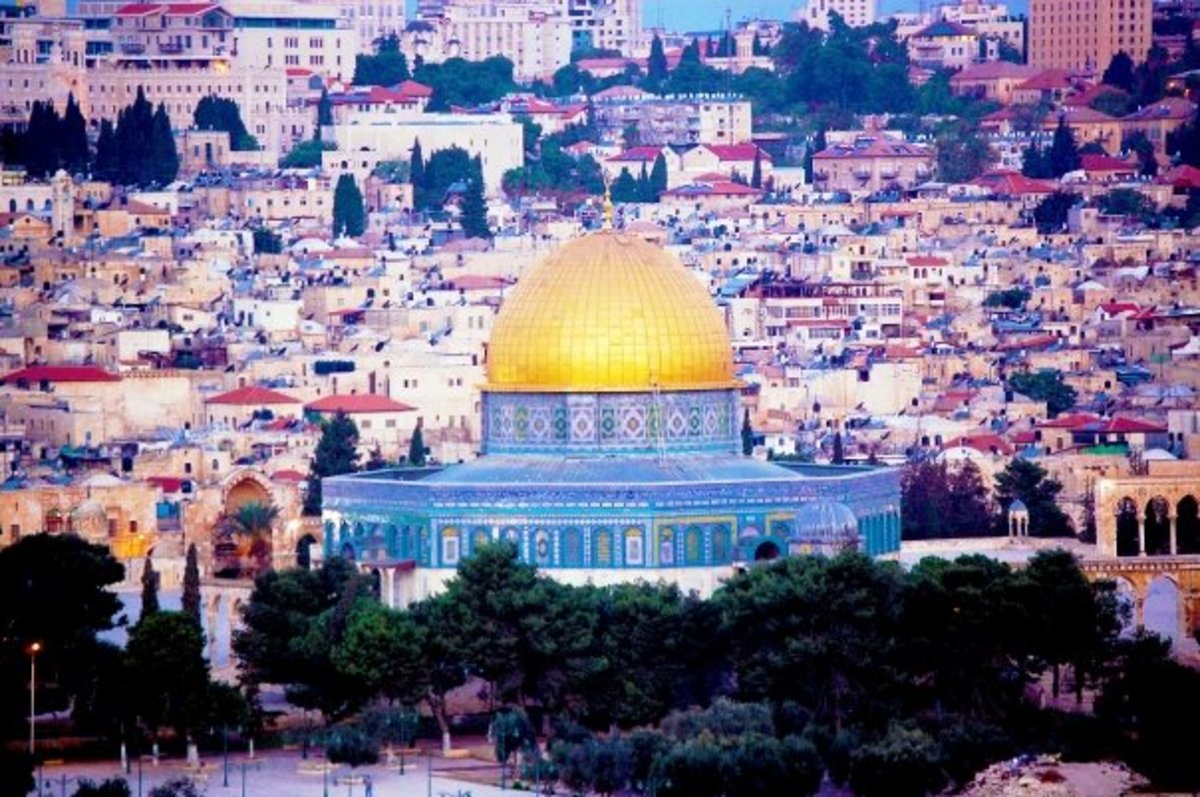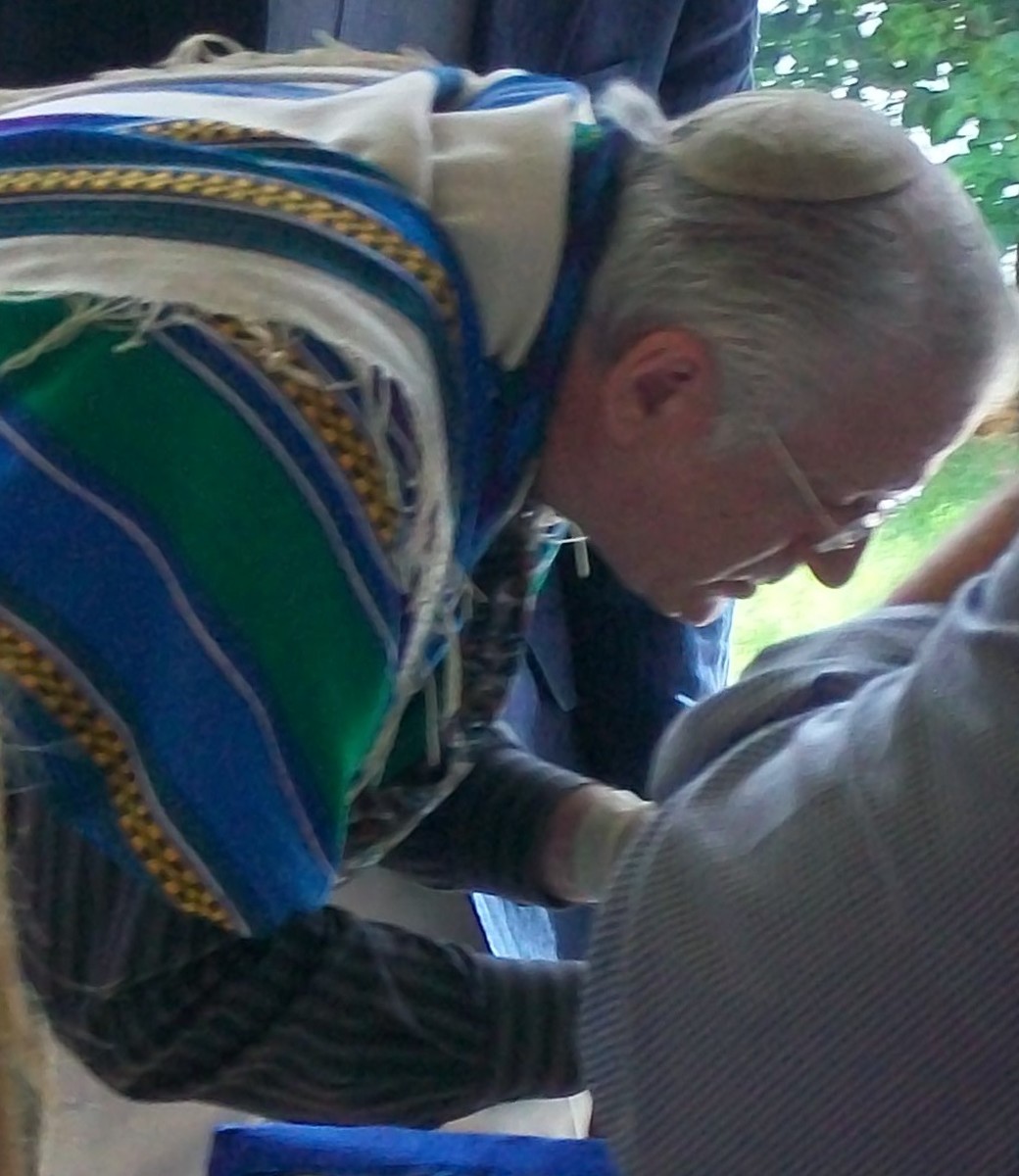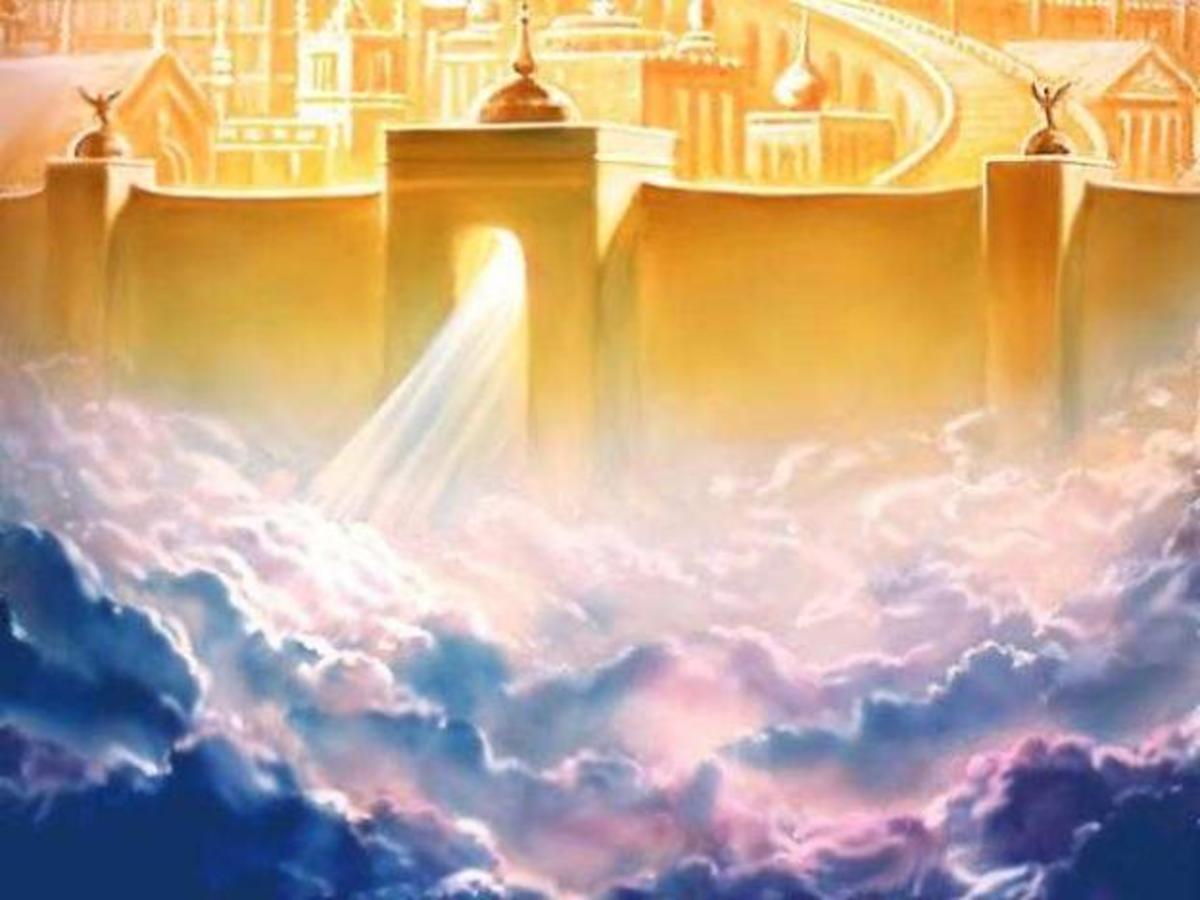The Religious and Political Significance of Jerusalem's Temple Mount
Located within Jerusalem's Old City, the Temple Mount holds religious significance for Jews, Muslims and Christians alike. It is the supposed site of Mt. Moriah, where Abraham nearly sacrificed his son Isaac, where the prophet Muhammad is believed to have ascended into heaven, and was the location of the first and second temples, Judaism's most holy structures. Due to the history and sanctity of the Temple Mount the potential for conflict is high, especially when considering the possibility of the construction of a 3rd temple. Islam's third most holy site, Judaism's first, and an area closely watched by Christians for a variety of reasons, the Temple Mount has captured the attention of those interested in religion, politics, and history, and will most likely continue to do so for years to come.
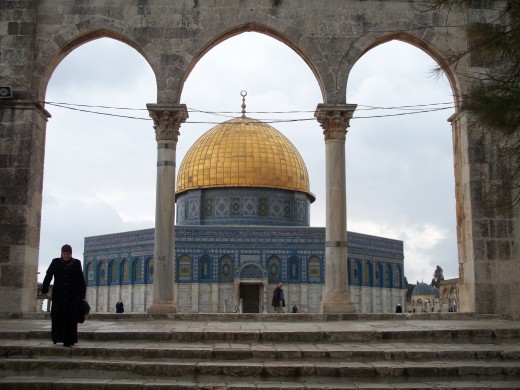
Historical Background
To no surprise, even the Temple Mount's history if rife with disagreements. Due to multiple biblical interpretations, there is controversy regarding the location of Mt. Moriah, the initial establishment of Jerusalem, even the existence of Solomon's Temple. But as we should all know, history is hardly an objective discipline, so what follows is as much history as it is personal opinion.
Genesis 22 relates the story of Isaac's binding by his father Abraham. Atop Mt. Moriah, Isaac is nearly sacrificed, but at the last moment, an angel of the Lord intercedes and stops Abraham. The story indicates the obedience Abraham possessed, an obedience that was willing to follow God's commands no matter the cost. Abraham's submission to the will of God was accompanied by an extremely important and significant reward: the promise of "descendants as numerous as the stars"; the Jewish people. it is no wonder then, that Mt. Moriah has retained its spiritual magnitude through the years.
According to 2nd Chronicles, construction of the First Temple was begun on Mt. Moriah under the rule of King Solomon. Completed in the 10th century B.C., the temple stood until 586 B.C., when it was destroyed by the Babylonians under King Nebuchadnezzar II, thus beginning the Babylonian captivity of the Jewish people. Under Cyrus the Great, the Jews were allowed to return to Jerusalem, and in 516 B.C., construction of the Second Temple was begun. Today, the Western, or Wailing Wall in Jerusalem is the last remnant of this temple, being destroyed by the Romans in 70 A.D. after the unsuccessful Great Jewish Revolt.
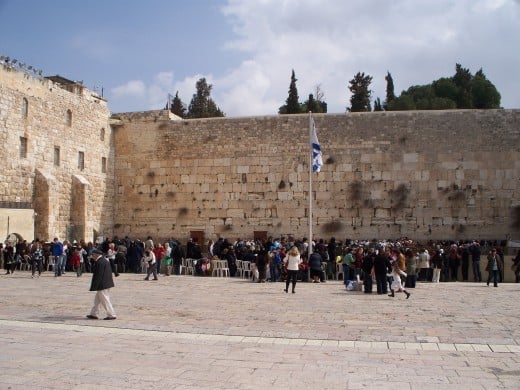
For Muslims, the Temple Mount is the third most holy site in existence, after Medina and Mecca. Islam, which considers Abraham, David and Solomon to be prophets, understandably hold reverence for this site. After the conquest of Jerusalem by Muslims in 638, the Temple Mount, or Noble Sanctuary to Muslims, was found to be used as a dumping ground by the Christian inhabitants (This was done largely to fulfill the prophecy spoken of in Matthew 24 that "not one stone will be left here on another"). Under the direction of the Caliph Umar the area was uncovered and cleaned, along with the sacred Foundation Stone. For Jews, the Foundation Stone was the exact spot of Issac's near sacrifice, for Muslims, the spot where the Prophet Muhammad ascended into heaven during his miraculous night journey to Jerusalem. Initially a fence was erected around the rock, but in 685 construction was begun on a permanent border around the sacred stone, the Dome of the Rock.
Another important feature of the Temple Mount is the Al-Asqa Mosque. Construction of the mosque was completed in 705 under the Umayyad Dynasty, and since then has undergone numerous reconstructions, most notably after its capture during the First Crusade. From 1099 to 1187, Jerusalem was under Christian control again, until the Muslim reconquest led by Saladin. Since then, the Temple Mount has been under the control of a waqf, or Islamic council, that oversees the area and has a fair degree of control over any and everything that affects the area, especially archeological digs.
A section from "Palestine Facts," a website on the history and current conflict of Palestine, has this to say about the construction of the Al-Aqsa Mosque (Bear in mind, this is a biased source, but from what I can ascertain, a fairly accurate one):
Then, in 715, to build up the prestige of their dominions, the Ommaid caliphs concocted a masterstroke: they built a second mosque in Jerusalem, again on the Temple Mount, and called this one the Furthest Mosque (al-masjid al-aqsa, or Al-Aqsa Mosque), from a passage of the Qur'an (17:1) describing the Prophet Mohammed's Night Journey to heaven (isra'). With this, the Ommaids retroactively gave Jerusalem a role in Mohammed's life, a role that was entirely fictional since Mohammed never visited Jerusalem, died in 632, and the Al-Aqsa Mosque was not built until 715, eighty-three years after his death.
This association of Jerusalem with al-masjid al-aqsa fit into a wider Muslim tendency to identify place names found in the Qur'an with locations they coveted, and then to claim it and build a mosque to replace whatever was there before.
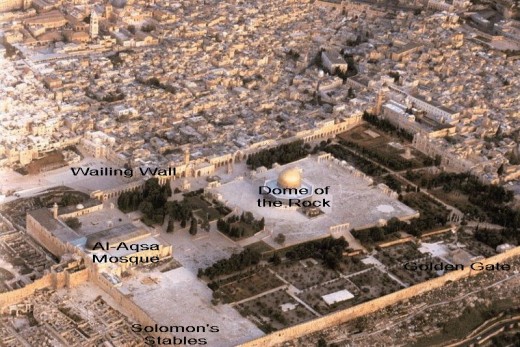
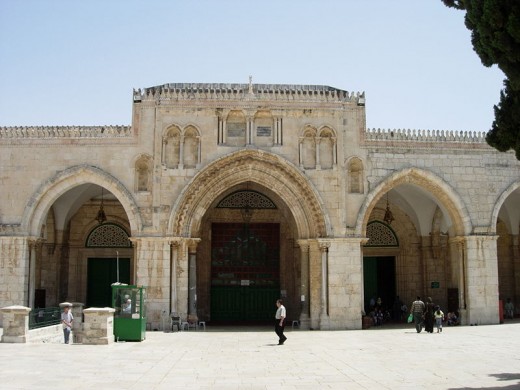
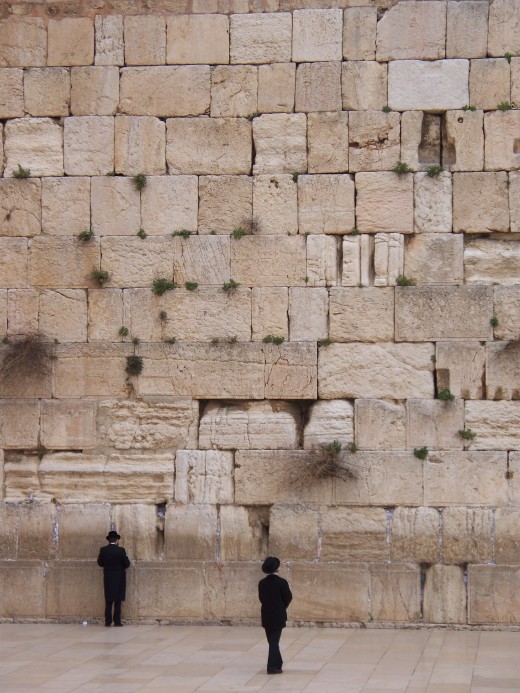
The Issues
After the Six Day War of 1967, Israel seized East Jerusalem from Jordan, which included the whole of the Old City. In an agreement aimed at preventing future conflicts and international repercussions, Israel took control of the Old City, while allowing the Muslim waqf to retain control of the Temple Mount. For the most part, this has been a peaceful co-existence. There are, after all, limits to the power of the waqf in regards to the Temple Mount, but conversely, the waqf has attempted to lmiit the amount of influence the Jewish people have upon the area. In 2000, after riots erupted due in part to a visit to the site by Israel prime minister Ariel Sharon, the area was closed to all non-Muslims, remaining so for nearly three years until the Israel government interceded in August of 2003. As Muslims aim at becoming more and more entrenched in the area through the building of mosques, Jewish organizations such as the Temple Institute and the Temple Mount Faithful intend to re-implement a strong Jewish presence on the site, which will culminate in the removal of the Dome of the Rock and the building of the Third Temple.
For many Muslims, relinquishing their presence on the Temple Mount is unthinkable. Not only is the Temple Mount, and Jerusalem, the third most holy site in Islam, but it is representative of a much larger, much more pressing issue: the Arab/Israel conflict. The majority of Muslims in the Arab world continue to hold deep resentment over the creation of the state of Israel and over the seizure of Jerusalem and the West Bank in 1967. The Temple Mount remains a crucially important symbol of control for Islam, Palestine in particular.
Western Wall
Interior of the Dome of the Rock
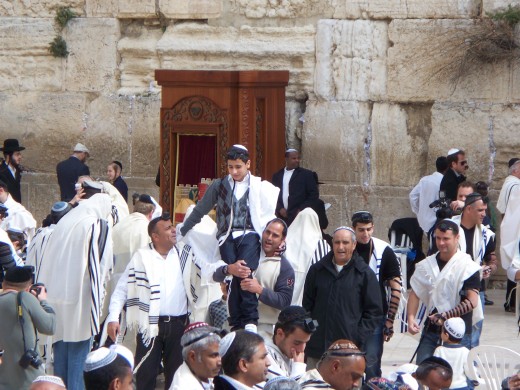
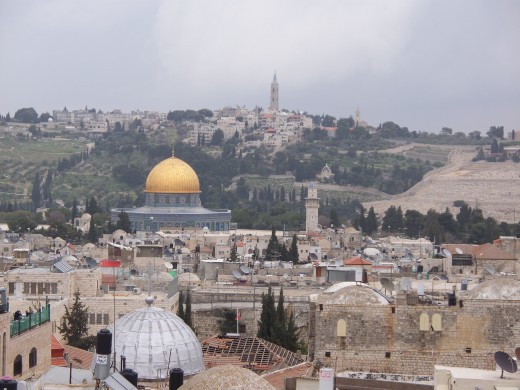
That being said, Islamic claims to Jerusalem are far more politically, rather than religiously motivated. It is simply fantastic, and erroneous, to try to imply otherwise. Jewish presence within the Temple Mount, indeed in all of Old Jerusalem, predates the Muslim by nearly two thousand years, and the existence of the First and Second Temples is denied by few in the scholarly field.
Despite the historical claims of Muslims to the Holy City and the Temple Mount, the stark fact is that Jerusalem is not mentioned once in the Qu'ran. The prophet Muhammad, despite some claims to the contrary, never once visited Jerusalem, he merely dreamed he did. Jerusalem, under Islamic control prior to the Six Day War, was little more than an unkempt and neglected village before coming under Jewish control. Interestingly, it was at precisely this moment that Muslim interest in the city was re-kindled, largely in part by the fiery propaganda of the P.L.O.'s Yassar Arafat, who not only believed in the complete destruction of the state of Israel but that Abraham was not a Jew, the Jews never lived in ancient Israel, Jews never had any connection to Jerusalem, there never was a Jewish Temple in Jerusalem, and that the Western Wall is not a Jewish holy site.
Bear in mind that this is not intended to be a treatise on the Arab/Israeli conflict, nor is it meant to show preference for either side. Obviously, much violence has been carried out by both Israelites and Palestinians, and neither can claim to have blood-free hands on the ever-enduring battle. But though this article was originally intended to be a non-biased overview of the politics involved regarding the Temple Mount, it has occurred to me now, almost unequivocally, that based on religious and historical claims, Jerusalem is to the Jews what Mecca is to the Muslims, and should be treated as such. There is no such dispute over Mecca, in fact non-Muslims are not even allowed within its limits, or even Medina for that matter, hardly the case with Jerusalem, a city that is visited by thousands of pilgrims from numerous faiths every year.



